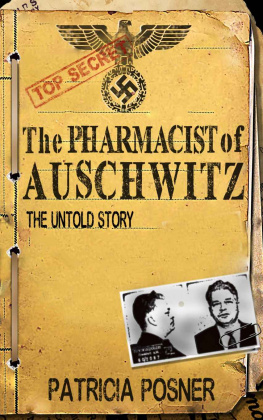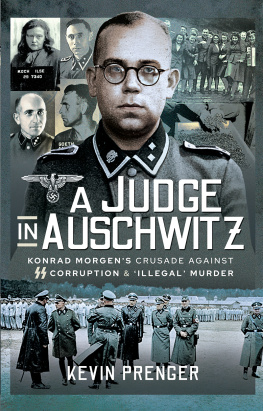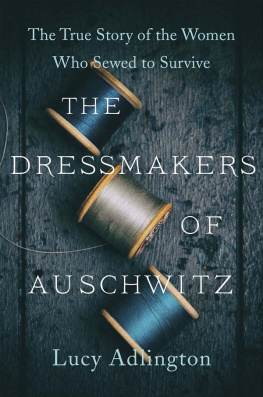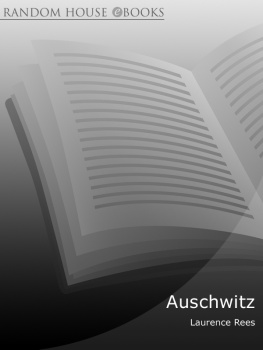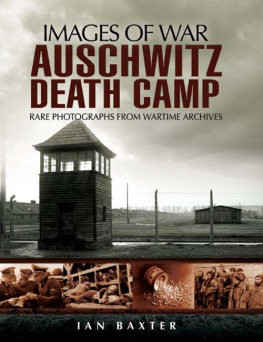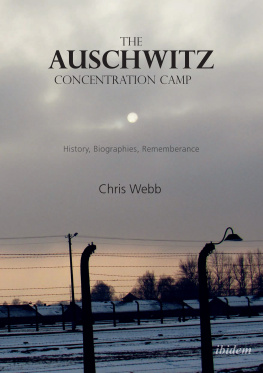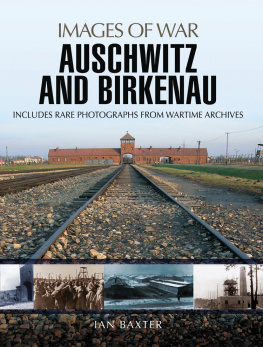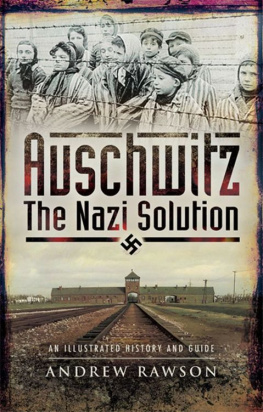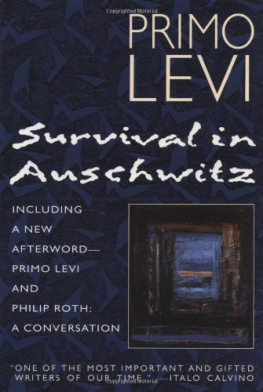The Pharmacist
of Auschwitz
The Untold Story
of Victor Capesius
Patricia Posner
About the Author
Patricia Posner is a British-born writer who has collaborated with her husband, the author Gerald Posner, on twelve non-fiction books, including 'Mengele: The Complete Story' a biography of Dr. Josef Mengele; 'Hitlers Children' a 1991 collection of interviews with the children of Nazi perpetrators; and most recently, 'Gods Bankers' a financial history of the Roman Catholic Church. Her work has appeared, among other places, in the Miami Herald, The Daily Beast and Salon. She lives in Miami Beach..
To Gerald, who encouraged me to channel into this book my passionate belief that the crimes of the Holocaust never be forgotten..
Introduction
by Rabbi Abraham Cooper
I had the honor and privilege of knowing and working with Simon Wiesenthal, the Nazi hunter, for nearly thirty years. As a result of losing 89 members of his family in the Nazi Holocaust, and due to the unspeakable barbarity and cruelty that Simon suffered and witnessed during the Shoah, he dedicated every day from May 5, 1945 when US soldiers liberated himmore dead than alivefrom the Mauthausen Concentration Camp, to pursuing and tracking down the mass murderers of his people. He would help hunt down some 1,100 Nazi criminals, including the man who arrested Anne Frank and her family..
Justice, not vengeance was his credo. We need convicted criminals, not martyrs for the neo-Nazi cause, Simon would tell us at the Simon Wiesenthal Center, which he established in 1977. He was a crusader for justice, who toiled virtually alone and without significant support during the Cold War years to ensure that memory would be preserved and justice would be served..
Every trial will be an inoculation against hatred and a warning to generations yet unborn of mans capacity for evil against his fellow man, he would tell audiences on American campuses in the 1970s and 80s..
How right this crusader for justice was. We live in a world where Holocaust denial is state policy of the Mullahocracy in Iran, where Holocaust terms and imagery are inverted and abused by extremists who hate the Jewish state; where words like Genocide and yes, even Auschwitz, are cynically co-opted by politicians, pundits, and even academics. Worse still is the instinct 70 years later to view the Shoah in the rearview mirror of history, to claim that Auschwitz has lost its relevance to our day..
That is why Patricia Posners THE PHARMACIST OF AUSCHWITZ: The Untold Story of Victor Capesius, is such an important and relevant work. It traces the path of an educated man, Victor Capesius, who was trained as a pharmacist, who was a well-liked salesman for IG Farben and Bayer, who knew and socialized with Jews in his native Romania before World War II. That same man would end up standing alongside Auschwitzs Angel of Death, sometimes sending people he knew in peace time, including young Jewish twins, to their immediate deaths in the gas chambers. He also safeguarded the Nazis stash of Zyklon B and provided drugs that would be used by doctors to perform horrific and deadly experiments on pregnant women and children. This was a man who picked through cadavers of murdered Jews in search of gold fillings and, driven by greed, dragged away heavy suitcases of gold extracted from thousands of victims..
As important as tracing Capesiuss Auschwitz career, is Ms. Posners reconstruction of the group trial of Nazi criminals in a West German court in the early 1960s. It included the chief aid to Auschwitzs commandant, and also doctors, dentists, even Kapos, along with Capesius. Throughout the trial and even after his conviction and sentencing to nine years, Capesius and the other defendants never showed remorse. Survivors who dared testify in the German court were greeted with stares of contempt by surviving Nazis who seemed disappointed that any of their victims had survived. In Capesiuss casethe liar, thief, and robber of the deadhe always denied his crimes, refused to take responsibility for his actions or to apologize to the Jews he murdered. He saw himself as the victim, a good person who was just following orders, a small cog who never should have been jailed in the first place..
On January 24, 1968, less than two and a half years into his nine-year sentence, Capesius was released from prison by Germanys highest court. After his release, Capesiuss first public appearance in Gppingen was with his family at a classical concert. As he walked into the music hall the audience broke spontaneously into enthusiastic applause. To many, including perhaps some of the ex-Nazi judges who had freed him, Capesius deserved sympathy and support. After all, to them he was just a good German who was just following orders..
Patricia Posner makes sure that new generations can understand that the path he, and others like him, chose led them straight to the gates of hell and beyond..
Rabbi Abraham Cooper.
Associate Dean.
Co-founder.
Simon Wiesenthal Center.
Los Angeles, California.
August 2016.
Authors Preface
In the spring of 1986 I went to New Yorks Plaza Hotel for a meeting that my husband, author Gerald Posner, had arranged at Trader Vics, a Polynesian-themed restaurant. It was for research we were conducting into Dr. Josef Mengele, the infamous Angel of Death responsible for gruesome medical experiments at Auschwitz, the largest Nazi concentration camp. What had started as a pro bono lawsuit by Gerald on behalf of two surviving Mengele guinea pigs had turned into a biography of the Nazi fugitive. During those intervening years we had traveled to Germany and South America, pursued the story in long-sealed archives, and also penetrated postwar neo-fascist circles that had helped Mengele stay one step ahead of Nazi hunters..
The meeting at Trader Vics was with none other than Rolf Mengele, the only child of the notorious doctor. Gerald and I waited in a dimly lit corner booth for 42-year-old Mengele to arrive. As a British Jew, I knew that if my maternal Polish grandparents had not emigrated to the United Kingdom at the turn of the twentieth century, it was likely they would have ended up at a Nazi death camp. Maybe they would have died at Auschwitz where men like Mengele reigned supreme. Little wonder that much of our Mengele research had seemed surreal to me. There had been that extremely uncomfortable and testy exchange Gerald had had in Buenos Aires with Wilfred von Oven, a top aide to Nazi propaganda chief Josef Goebbels and also the publisher of a virulently anti-Semitic postwar journal in Argentina. Or the time I saw a collection of Nazi memorabilia, gifts from one of Mengeles sponsors for citizenship in Paraguay. But that all seemed quite distant now that I was about to meet Rolf Mengele..
Gerald and I had discussed it many times. A child is not responsible for the sins of the father. And I knew from our work that Rolf condemned what his father did at Auschwitz and was trying hard to make amends by allowing Gerald to use his fathers diaries and letters free of charge in the upcoming biography. The New York visit was in part to discuss whether Rolf might agree to talk about his father on live television (he did, with Gerald, on the Phil Donahue Show that summer). Still, while my brains rational side understood that the man I was about to meet bore no responsibility for the bone-chilling crimes committed by his paternal namesake at Auschwitz, I was nevertheless a jumble of nerves and conflicting emotions. Gerald had already met with Rolf in Germany over several weeks and the two had developed a good rapport. I was the one now on the spot..

